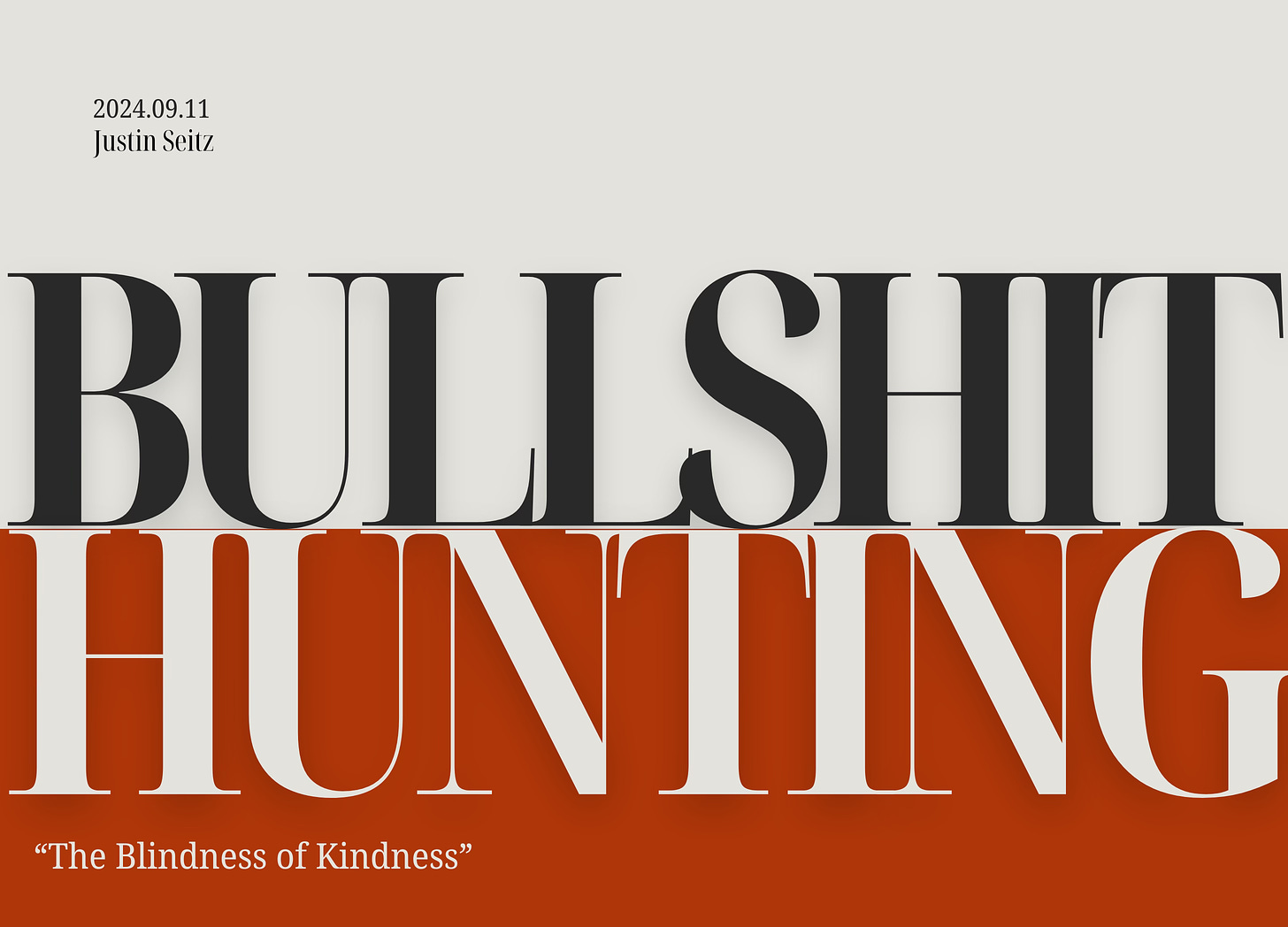The Blindness of Kindness
A neurodivergent's battle through the shitstorm of lies in the justice system.
“No fucking way!”
My hands slap against my lap as I watch Axon body camera footage of what I now know is a prosecution’s witness lying. A witness that was nearly—and solely—responsible for the wrongful conviction of a young man.
“Fucking liar!” I shout. The Axon body camera footage wobbles and quivers around the screen in a way that makes a person nauseous.
Now, I feel the injustice rage, with a special dash of neurospicy1. Neurodivergents, we have a lot of extra feels when it comes to injustice, dishonesty, or a lack of empathy toward anything—living or dead.
“You fucking liar, I can’t believe this!” now, I stand from my desk and walk away from my laptop. I’m disgusted.
Frankly, my office walls see this frequently—a one-sided conversation between me and a witness or a prosecution’s team, lamenting and moaning over their dishonesty, only seen and heard by my laptop.
Sometimes these declarations—“Liar!”—seem premature to my colleagues, friends and family. The problem is that, in this context, I’m rarely wrong. I have a peaceful relationship with being wrong. I expect it when assessing evidence and researching core facts, which is why I reassess hundreds of times in a case to remove the ‘wrong’ and readjust my theories and conclusions.
I iterate over and over, as one should.
But lies are an odd thing for me. Call it a developed function of my neurodivergence and trauma-infused background. You see, when you’re raised in a home with domestic violence, alcoholism, sexual abuse, drug abuse and other harmful activities, you learn to study people as they come through the door.
Body language.
Facial expressions.
You consistently take in information and connect dots in your mind—particularly as a child. This is an inherent safety mechanism that helps you decide whether it’s safe to engage with these adults or whether you ought to go for a bike ride or head for your room with a book (to have to consider this about your guardians is a truly fucked up thing to reflect on as adult).
Combining this ability to closely study and catalogue people’s activities makes you an encyclopedia—an automatic fact-checker of the world around you.
Fold this in with a brain that is wired to connect the dots and decades of technical experience; now you see how after watching a handful of videos, reading statements and observing digital evidence, I call bullshit early and often when it comes to humans.
The problem is that I fail to act aggressively and fast enough.
This is my shortcoming. Privately, I seethe. Publicly, I rage, but I anonymize them.
I worry that I am going to cause harm by being too hasty when it comes to an expert report or testimony. I see what happens when a lack of concrete evidence is used to eviscerate someone’s life, and I certainly do not want to be a participant myself.
Particularly since I’ve already written about a previous close call I’ve had.
So I always dig back in, I re-review. I request more records. I run it past colleagues, we encourage each other to play Devil’s Advocate.
I verify. I relish trying to prove myself wrong. I throw my errors at my team and give them enthusiastic permission to have a good go at me.
But often, it simply ends with: “Yeah, I knew it.”
Still? I don’t believe myself. I don’t want to believe that someone would sit in a courtroom before a judge, a whole room, experts, and digital evidence—
and lie.
My guts absolutely turn at the thought. When I finish testifying, the first thing I do is request transcripts. Then, I comb through them desperately hoping I didn’t say something inaccurate, very prepared to write a report for the Court to apologize. Ready for all the horrible things that could and should happen to me.
Death. Despair. The gnashing of teeth.
I don’t find any but I am more convinced that I have lied somehow, than someone who I know for a fact is lying.
What a paradoxical and unending loop of neurodivergence, trauma, investigative history and straight, white male privilege mixed in.
So what’s the antidote, you wonder?
Thorough notes and timelines—the Thelma and Louise of case documentation—because they don’t give a shit about your feelings, neurodivergence or how shitty your Dad was.
Just dates, times and sources, baby.
You work your case like a heavy boxing bag, hitting from every angle, pushing with relentless focus until all the bias and as many unknowns are gone. You wear it down, strip away the layers of assumption and uncertainty, until what remains is the solid, indisputable core.
And bias works in all directions. Kindness, empathy, neurodivergence, these are biases too, and they can be just as dangerous as racism, hate and apathy.
Solid, methodical documentation is how you boil the bias out of the broth.
I just wish I would have followed my own advice sooner in this case.
That, I deeply regret.
“What did I fucking say? I knew it,” I say, again, as I pick up the phone.
Shoutout to all of my neurospicy homies.




